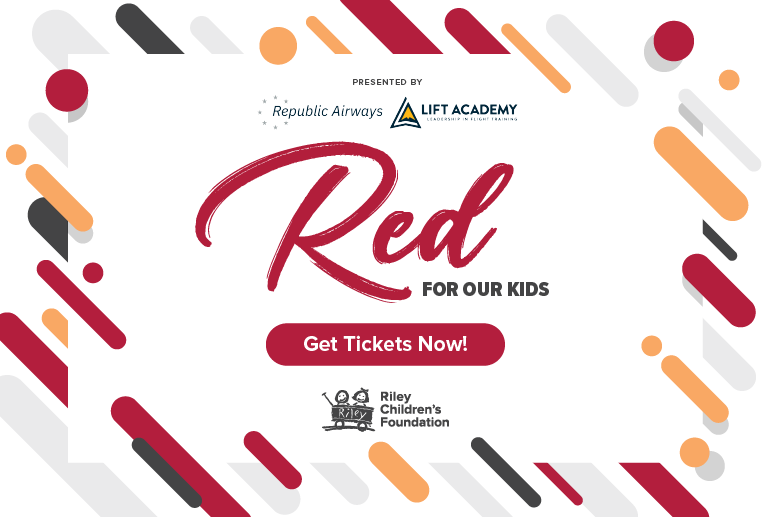Terminal diagnosis didn’t stop Tom Goss from helping kids beat cancer
Tom Goss was a man who always put his family first. He balanced a successful business career with golf, Ohio State football and relaxing at the lake. He was also a man who, during treatment for terminal cancer, stepped up to help children with the disease avoid a similar fate.

“Even before Tom was diagnosed, he would get choked up when we’d see or hear of a child dealing with cancer,” said Ann Goss, who was married to Tom for 36 years before his death at age 60 in 2022. “He would say cancer was something no child should have to go through, and then when he got it, he said to me, ‘Ann, we really have to do something.’”
Tom’s desire to create a brighter future for children with cancer resulted in the Tom Goss Scholars program at Riley Children’s Foundation. Conceived in the final weeks of Tom’s life, the program provides funding for young physician scientists at Riley Children’s Health who integrate research with clinical care. The goal of the fund is to provide hope for pediatric cancer patients through advancements in treatment and improved quality of life for children with cancer.
“Tom grew up in Indianapolis and knew what a great children’s hospital Riley is, and how lucky we were to be so close if there was ever a need with our own children,” said Ann, who has two children, now adults, with Tom. “Ultimately, with this gift he was thinking about the kids and families at Riley and everything they have to go through to hopefully survive.”
Improving the lives of children with cancer is the passion of Dr. Jennifer Belsky, the first Tom Goss Scholar. A pediatric oncologist and physician scientist, Dr. Belsky leads research aimed at reducing the side effects of chemotherapy drugs in children. Her current research involves the cancer medication vincristine, the most common chemotherapy used to treat childhood cancer. While highly effective at fighting the disease, it also causes neuropathy, characterized by nerve pain, numbness and muscle weakness, in more than 50% of children and teenagers receiving treatment. Neuropathy can become so severe that treatment with vincristine must be reduced – or even paused, which can affect a child’s chance for survival.
“My research focuses on how we can make quality of life better for these kids during and after chemotherapy, while at the same time improving their outcomes,” said Dr. Belsky. “We’re currently looking at more than 95 biomarkers in the blood that might help us detect neuropathy early and predict who is most at risk of developing it.”

Meeting with Dr. Belsky and learning about her research, Ann and her children, Bridgit and Thomas, are certain that Tom would be proud of the program he and his family are supporting. They are honored to be the caretakers of one of his final wishes.
“A person’s character is judged by what they do when they are at their worst,” Thomas said. “Dad was so sick, and he chose to do this.” Bridgit, echoing words from the eulogy she delivered at Tom’s funeral, agreed. “Growing up, Dad never told us how to live but instead modeled it with his actions,” she said. “We have the biggest hole in our hearts, but how lucky are we that it was filled with our Dad—not many people are blessed to live alongside somebody like him."
